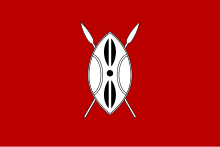
.The Maasai (or Masai) are semi-nomadic people located primarily in Kenya and northern Tanzania. They are considered to be part of the Nilotic family of African tribal groups, just as the Scilluk from Sudan and the Acholi from Uganda.Despite the growth of modern civilization, the Maasai have largely managed to maintain their traditional ways, although this becomes more challenging each year.
The ability to graze their cattle over large territories, for example, has diminished considerably in recent years, due to increased urbanisation and the declaration of the Maasai Mara and Ser engeti game reserves, which was all formerly Maasai grazing land.The Tanzanian and Kenyan governments have instituted programs to encourage the Maasai to abandon their traditional semi-nomadic lifestyle, but the people have continued their age-old customs. Recently, Oxfam has claimed that the lifestyle of the Maasai should be embraced as a response to climate change because of their ability to farm in deserts and scrublands. Many Maasai tribes throughout Tanzania and Kenya welcome visits to their village to experience their culture, traditions, and lifestyle
 A long queue of Masai mourners attending Ntimama's burial in Narok on September 14,
A long queue of Masai mourners attending Ntimama's burial in Narok on September 14, 2016.
President Kenyatta was angered by the remarks made by one of the religious leader’s who suggested that the Maasai community were better off voting for unity in the elections rather than going to the polls with a conscious mind on developments.
” You cannot tell the Maasais to vote for unity and leave development behind, that is stupidty,” said Uhuru Kenyatta.A few weeks to his death, Ole Ntimama led a group of Maasai leader’s to State House and claimed that the community had joined the ruling Jubilee Alliance.
The Bishop’s sentiments were thus seen by Uhuru as an insinuation the community was better off outside Jubilee Allaince which promises development to the community.
It was an ugly sight at William ole Ntimama’s funeral. President Uhuru Kenyatta and former Prime Minister Raila Odinga had a political stand-off in front of the grieving family and other mourners. For some reason this seemed normal. The media coverage was keen to highlight the sensational “continue salivating” put down of Raila by Kenyatta. No one seemed perturbed by the total crassness of political squabbling by our two most prominent politicians even as a man lay ready to be buried. This, of course, is not new. The funerals of prominent individuals have always been charged political events in Kenya. More often than not they serve as occasions for surviving politicians to lay claim to the political kingdom of the departed. Having been the self-appointed voice of the Maasai for a long time, Ntimama’s funeral was always going to be a political affair.
Former Tanzanian presidential aspirant Edward Lowassa on Wednesday called upon Maasai people to be united.Speaking during the funeral of former Cabinet Minister William ole Ntimama, Mr Lowassa said Maasai people should be united and protect the interest of others without fighting.
(A Cabinet Minister like Nkaissery should call a meeting in Kijiado, which is a very developed place. Lets meet and deliberate on what needs to be done because this issue is long overdue. In Tanzania there are so many conflicts between farmers and pastoralists because they don’t understand each other. We have therefore said we should meet and see what can be done about this issue.)
The Tanzanian politician who was clad in Maasai elders’ regalia thanked Ntimama’s widow for taking care of the veteran until his death calling upon the children to take care of their mother as well.During the Tuesday requiem mass at the All Saints Cathedral Mr Lowassa said the late Ntimama championed land rights for the Maasai.
But the normalcy of this all should not dull our minds. Politicking at funerals is singularly disrespectful and gross. Full stop. Why do our politicians continue to do it anyway? For the simple reason that they lack respect for regular wananchi. It takes a special level of self-obsession to imagine that people turn up to funerals to hear you talk politics. Forget the pain of loss experienced by families of the dead. Forget the need for self-reflection as a country when someone with a chequered political history like Ntimama passes on. All our ethnic chiefs ever care about is grabbing the political base of the departed. They never pause to think of the consequences of their actions. They never pause to think of how such deaths can be used as teachable moments to make our Nations better. I pick on President Kenyatta and Premier Raila because they should know better.
By all accounts the two are gentlemen with deep capacities for self-reflection. They also occupy special places in the hearts and minds of most Kenyans. We should therefore expect nothing short of the best possible representation or our shared values as a country. And so when they muckrake at a funeral it is doubly disappointing. It demeans our politics. It demeans us as a people. And it reinforces a harmful habit as part and parcel of our political culture. As a country we eat, breathe, drink, and sleep politics. We see politics everywhere. And the consequence of this has been that a total failure to think objectively about matters of national importance. We don’t listen to experts. We don’t trust data. We prefer to take advice from ethnic praise singers and quacks. This is precisely why we need more apolitical spaces — like funerals, church services, sporting events, cultural festivals, national celebrations, and technicality competent policy think tanks. This may seem naïve. After all, nothing is ever truly apolitical. But I believe that we can accept this reality but still commit ourselves to performing a non-political display of national unity and a concern for the common good. The country needs this badly. And it has to start at the top
No comments:
Post a Comment